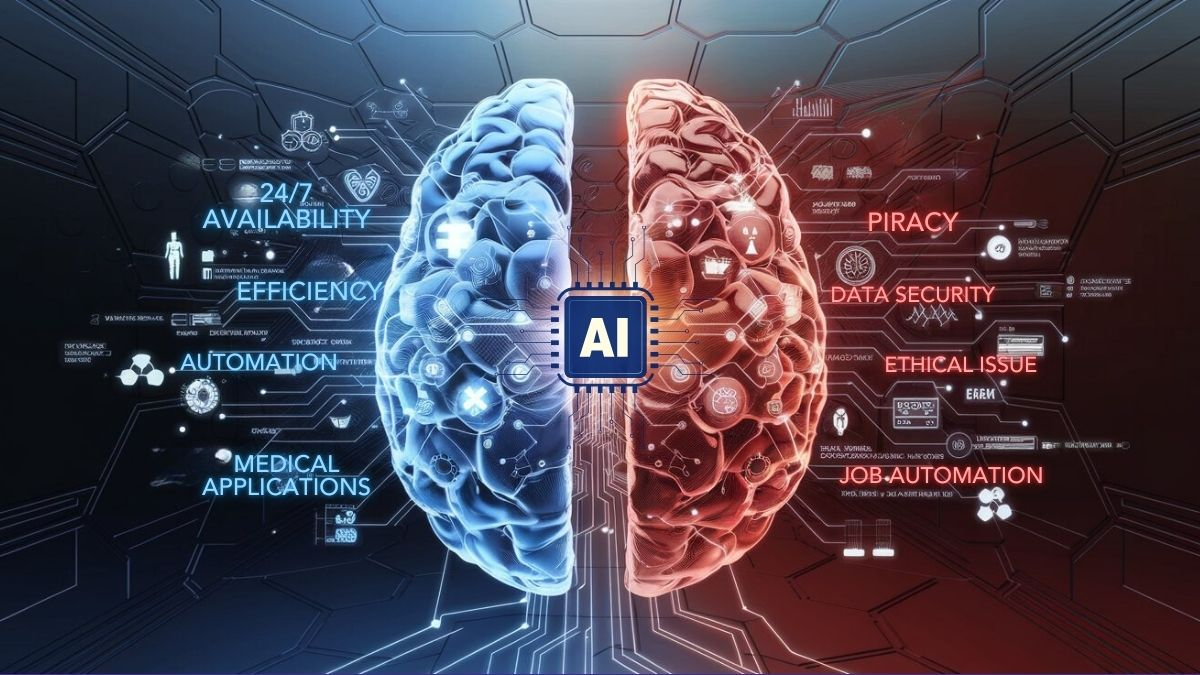The Future of Work: How AI is Shaping Job Roles in 2025
Artificial Intelligence (AI) is no longer a futuristic concept—it has become a core driver of change across industries in 2025. As AI technologies evolve, they are transforming the way we work, redefining job roles, and introducing new opportunities. Let’s explore how AI is shaping the workplace and the implications for professionals in various sectors.
- AI as a Collaborative Partner
In 2025, AI is not replacing humans but augmenting their capabilities. AI tools assist professionals in automating repetitive tasks, analyzing large datasets, and providing insights that drive decision-making. For example:
- Marketing Professionals use AI to personalize campaigns, optimize ad performance, and predict customer behavior.
- Healthcare Workers rely on AI for faster diagnoses, treatment planning, and patient monitoring.
By taking over mundane tasks, AI allows employees to focus on creative and strategic work.
- Creation of New Job Roles
The integration of AI has led to the emergence of entirely new job roles. Some of the in-demand positions in 2025 include:
- AI Trainers: Professionals who teach AI systems to interpret data and respond accurately.
- Ethical AI Specialists: Experts who ensure that AI systems operate fairly and without bias.
- Data Storytellers: Analysts who translate AI-driven insights into actionable business strategies.
These roles highlight the symbiotic relationship between human creativity and AI efficiency.
- Upskilling and Reskilling: The Key to Adaptation
With AI reshaping industries, continuous learning has become essential. Companies are investing heavily in training programs to equip their workforce with skills such as:
- Machine Learning and Data Science
- AI Integration and Management
- Cybersecurity in AI Environments
Online platforms and virtual reality (VR)-powered learning environments make skill acquisition more accessible and engaging.
- Enhanced Remote Work and Collaboration
AI-powered tools are revolutionizing remote work by enabling seamless collaboration and communication. Examples include:
- Smart Meeting Assistants that summarize discussions, highlight key points, and assign action items.
- Virtual Collaboration Platforms where teams interact in immersive digital environments.
AI ensures that remote teams remain productive, connected, and efficient.
- Challenges and Ethical Considerations
While AI offers immense benefits, it also raises important ethical and societal questions:
- Job Displacement: Some traditional roles may become obsolete, requiring proactive reskilling efforts.
- Bias in AI Systems: Ensuring that AI operates without perpetuating biases remains a top priority.
- Privacy Concerns: Safeguarding sensitive data in AI-driven environments is critical.
Governments, businesses, and educators must work together to address these challenges responsibly.
Conclusion
The future of work in 2025 is a dynamic landscape where AI empowers humans rather than replacing them. By embracing AI, professionals can unlock new opportunities, enhance productivity, and drive innovation. The key lies in adaptability—staying ahead of the curve through continuous learning and ethical implementation.
As we navigate this AI-driven era, one thing is certain: the human-AI partnership will redefine what it means to work, innovate, and succeed.


